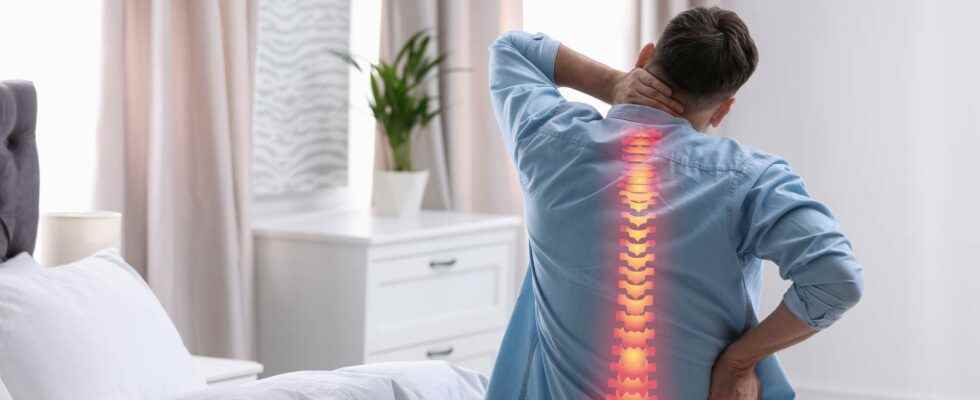Back pain is a very common pathology. We talk about chronic pain when its duration is more than three months. This can be extremely debilitating for the people concerned, especially when no treatment seems to be working. Acupuncture could be an effective alternative therapy.
You will also be interested
[EN VIDÉO] Reduce pain with a magnetic field? In this Inserm video, from the “Black Box” series, pain is presented as a nervous process controlled by the brain. The film shows an experimental method aimed at reducing pain in patients using a targeted magnetic field applied to specific areas of the brain.
Cochrane is an independent international not-for-profit organization. Founded in 1993, its objective is to facilitate health decision-making at the light scientific data. To do this, she carries out systematic reviews of the medical literature and summaries of research data. These documents are of very good quality. There is a French Cochrane centre, created in 2010. It is in this context that the existing data on the treatment of low back pain chronicles by theacupuncture were summarized in this article recently published in The Rheumatologist’s Letter. The objective of the authors is to evaluate the benefits of acupuncture versus usual treatments, sham acupuncture or no treatment on the pain and the quality of life of people with chronic low back pain.
What is acupuncture ?
Acupuncture comes from the traditional medicine Chinese. The best known method is the implantation of needles to stimulate acupuncture points in various places on the body. It is often used to relieve chronic pain, especially back or head. It is also known to treat anxiety, insomniathe nausea of pregnancy where the addictions (tobacco, alcohol, drugs psychoactive). Only certain trained health professionals can practice acupuncture: doctors, dentists or midwives.
Why is it difficult to scientifically evaluate acupuncture?
There are many data in the scientific literature. To obtain the best possible level of proof when carrying out a clinical testit must be carried out double-blind, that is to say that neither the caregiver nor the patient know the therapy administered: treatment to be tested versus placebo, treatment to be tested versus reference treatment. When it comes to medicine, just make tablets placebo identical to the tablets which it is desired to evaluate. In the case of acupuncture, it is more complex: it is impossible for the practitioner to ignore whether he is performing a real acupuncture or a fictitious acupuncture. This is why the level of proof of the tests carried out is often low to moderate.
Nevertheless, theacupuncture did the proof of its effectiveness on the treatment of chronic pain and on the relief of nausea and vomiting in the pregnant woman and post-chemotherapy.
What are the latest data from the literature on chronic low back pain?
A meta-analysis involving seven trials and 1,403 participants showed that acupuncture could relieve pain in chronic low back pain in the short term, lasting seven days, compared with sham acupuncture (low level of evidence).
Another meta-analysis of four trials and 366 participants showed that acupuncture provided significant pain relief (moderate level of evidence). Other data show that acupuncture could rreduce pain and improve the specific function of the back immediately (low level of evidence, five trials, 1054 participants). Finally, another set of trials shows with a moderate level of evidence that acupuncture was more effective for improve quality of life than usual care.
What are the potential side effects of acupuncture?
The authors compared the adverse effects reported by patients in the sham acupuncture group and the real acupuncture group: they were not statistically different. The same observation could be made by comparing the true acupuncture and usual care group. In general, the adverse effects associated with acupuncture are very limited when it is practiced by a properly trained practitioner and using sterile single-use needles.
Interested in what you just read?
Subscribe to the newsletter Health question of the week : our answer to a question you ask yourself (more or less secretly). All our newsletters
